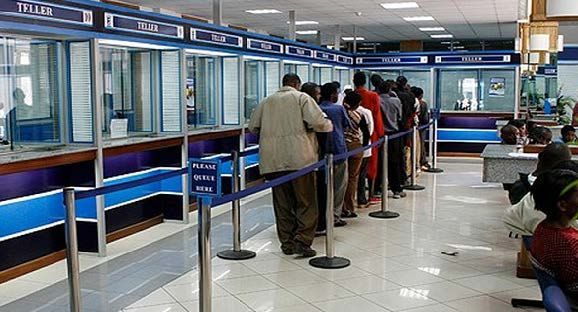Introduction

In Nigeria, the protection of depositors’ fund is primarily overseen by the Nigeria Deposit Insurance Corporation (NDIC). Established in 1988, the NDIC provides a safety net for depositors through an insurance coverage on their deposits in the event of bank failures or closures. Arguably, this is one of its most significant roles. The recent failure of the renowned Silicon Valley Bank (SVB) following a bank run raised global concerns regarding the safety of bank deposits. Fortunately for the depositors, they will be able to access their funds following the intervention of the Federal Deposit Insurance Commission (FDIC).
The FDIC was established in 1933 as a response to the wave of bank failures that occurred in the 1930s. It operates as an independent government agency that is sustained by premiums paid by banks and savings associations. Since its inception,
it has been consistently positioned to protect depositors from losing the entirety of their funds as a result of bank failures. In the US, each depositor at a bank is covered up to a limit of $250,000 per account ownership category by FDIC insurance. Various studies have shown that most Americans typically maintain deposits below this limit, the majority of them are eligible for coverage under the FDIC insurance program.
The deposit coverage for each country differs and is specific to the financial standing and quality of the Country’s depositors. For example, in Nigeria, the protection of depositors’ fund is not to an infinite level. The NDIC insures deposits up to a maximum of N500,000 (approximately $1,300 USD) per depositor, per bank, for all deposit accounts held in various ownership categories, including individual, joint, and trust accounts. Although this may seem low, it stands with reason when one considers the fact that only 2% of the 70 million bank account holders have more than N500,000 in their accounts. It is important to note that the NDIC coverage does not extend deposits in non-licensed financial institutions or informal savings schemes; rather, it applies to all licensed banks, including commercial banks, merchant banks, and non-interest banks, as well as primary mortgage banks and microfinance banks.
As earlier alluded to, the NDIC has other roles beyond the depositor coverage. And one can argue that these roles are preventive in nature. For example, it performs some risk assessments on the applicable banks to ensure their safety and
soundness vis-à-vis the Nigerian financial system, expectation and framework. Essentially, the NDIC at its core, has a supervisory role over banks for the purpose of protecting depositors fund, fostering monetary stability, promoting an effective
and efficient payment system, and promoting competition and innovation in the banking system. And by extension, it arguably reduces or prevents the potential risk of Bank failure.
In the event that the Bank does fail notwithstanding the above, the NDIC has the responsibility to ensure that the cause of failure is identified and resolved timeously and efficiently. Furthermore, where the corporation fails and does not respond to
resolution methods, the bank liquidation option is considered and adopted by NDIC to ease the bank out of legal existence. This will naturally involve closure of the failed institution in a way to has little or minimum disruption to the banking system with a cost-effective strategy to realize the assets of the bank and the settling of depositor, creditor and shareholder claims where possible.
Also, it is important to state that beyond the NIDIC, the Central Bank of Nigeria also has in place, a plethora of measures to protect depositors, for example, the minimum capital requirements for banks, regular bank examinations, and strict regulations on the operations of banks. In the same manner, the Securities and Exchange Commission (SEC) in Nigeria also has a role to play in the protection of depositors. It does this by regulating the activities of investment and securities of companies, mutual funds, and other financial institutions so as to checkmate their excesses.
Finally, it is important to note that the importance of agencies such as the NDIC around the world cannot be downplayed. It provides an extra confidence in each country’s banking system which must be maintained to advance their financial
system. More so, considering the interconnectedness of the Global Bank Sector, one can argue that the continued maintenance of agencies such as the NDIC and FDIC will positively serve the global financial system.






